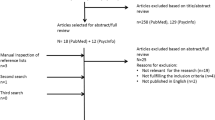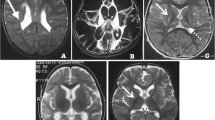Abstract
Objectives
We aimed to assess neuropsychological development in school-aged children with ventricular septal defect (VSD) after surgery or transcatheter closure.
Methods
We included 31 children with VSD who underwent surgery and 35 who underwent transcatheter closure and their age- and sex-matched best friends as normal controls and parents. The Halstead-Reitan Battery was used to measure psychological and behavioral functions of children.
Results
The mean finger-tapping time (left hand) was significantly lower for children with than without VSD (P < 0.05). For non-handedness tactual performance, the mean time was significantly longer for surgery than interventional therapy groups and controls (P < 0.05). The number of remembered locations was significantly lower for surgery than interventional therapy groups and controls (P < 0.05). The correct number of music rhythms was significantly lower for the surgery than control group (P < 0.05). Children with and without VSD did not differ in the correct number of first-group music rhythms. Nevertheless, for second- and third-group music rhythms, the correct number was significantly lower for the surgery than interventional therapy groups and controls (P < 0.05). The correct number of third-group music rhythms was significantly lower for only the interventional therapy than control group.
Conclusion
School-aged children with VSD had normal IQ levels after surgery or interventional therapy but decreased fine-motor and auditory discrimination abilities as well as visual spatial disorder. Children with and without VSD did not differ in general tasks, but abilities on more complex and difficult tasks were lower for children with VSD. Impairments were greater after surgery than interventional therapy.
Similar content being viewed by others
Abbreviations
- VSD:
-
Ventricular septal defect
- CHD:
-
Congenital heart disease
- IQ:
-
Intelligence quotient
- HRB:
-
Halstead-Reitan Battery
- TPT:
-
Tactual performance test
References
Larrabee GJ, Millis SR, Meyers JE (2008) Sensitivity to brain dysfunction of the Halstead-Reitan vs an ability-focused neuropsychological battery. Clin Neuropsychol 22(5):813–825
Boake C (2002) From the Binet-Simon to the Wechsler-Bellevue: tracing the history of intelligence testing. J Clin Exp Neuropsychol 24(3):383–405
Lin CCH, Chen WJ, Yang HJ, Hsiao CK, Tien AY (2000) Performance on the Wisconsin card sorting test among adolescents in Taiwan: norms, factorial structure, and relation to schizotypy. J Clin Exp Neuropsychol 22(1):69–79
Tien AY et al (1996) Computerized Wisconsin card sorting test: comparison with manual administration. Kaohsiung J Med Sci 12(8):479–485
MacPherson S, Della Sala S (2000) Welcoming normative data for Wisconsin card sorting test. Neurol Sci 21(5):258–260
Hovels-Gurich HH et al (2002) Long-term neurodevelopmental outcomes in school-aged children after neonatal arterial switch operation. J Thorac Cardiovasc Surg 124(3):448–458
Alipour A, Arefnasab Z, Babamahmoodi A (2011) Emotional intelligence and prefrontal cortex: a comparative study based on Wisconsin card sorting test (WCST). Iran J Psychiatry Behav Sci 5(2):114–119
Laiacona M, Inzaghi MG, de Tanti A, Capitani E (2000) Wisconsin card sorting test: a new global score, with Italian norms, and its relationship with the Weigl sorting test. Neurol Sci 21(5):279–291
Alvarez JA, Emory E (2006) Executive function and the frontal lobes: a meta-analytic review. Neuropsychol Rev 16(1):17–42
Rzezak P, Fuentes D, Guimarães CA, Thome-Souza S, Kuczynski E, Guerreiro M, Valente KDR (2009) Executive dysfunction in children and adolescents with temporal lobe epilepsy: is the Wisconsin card sorting test enough? Epilepsy Behav 15(3):376–381
Mattioli F, Stampatori C, Capra R (2011) The effect of natalizumab on cognitive function in patients with relapsing-remitting multiple sclerosis: preliminary results of a 1-year follow-up study. Neurol Sci 32(1):83–88
Neri ML, Guimarães CA, Oliveira EP, Duran MH, Medeiros LL, Montenegro MA, Boscariol M, Guerreiro MM (2012) Neuropsychological assessment of children with rolandic epilepsy: executive functions. Epilepsy Behav 24(4):403–407
Bellinger DC, Wypij D, duPlessis AJ, Rappaport LA, Jonas RA, Wernovsky G, Newburger JW (2003) Neurodevelopmental status at eight years in children with dextro-transposition of the great arteries: the Boston circulatory arrest trial. J Thorac Cardiovasc Surg 126(5):1385–1396
Majnemer A, Limperopoulos C, Shevell M, Rosenblatt B, Rohlicek C, Tchervenkov C (2006) Long-term neuromotor outcome at school entry of infants with congenital heart defects requiring open-heart surgery. J Pediatr 148(1):72–77
McBride MG, Kirshbom PM, Gaynor JW, Ittenbach RF, Wernovsky G, Clancy RR, Flynn TB, Hartman DM, Spray TL, Tanel RE, Santiago MC, Paridon SM (2007) Late cardiopulmonary and musculoskeletal exercise performance after repair for total anomalous pulmonary venous connection during infancy. J Thorac Cardiovasc Surg 133(6):1533–1539
Snookes SH, Gunn JK, Eldridge BJ, Donath SM, Hunt RW, Galea MP, Shekerdemian L (2010) A systematic review of motor and cognitive outcomes after early surgery for congenital heart disease. Pediatrics 125(4):E818–E827
HovelsGurich HH et al (1997) Cognitive and motor development in preschool and school-aged children after neonatal arterial switch operation. J Thorac Cardiovasc Surg 114(4):578–585
Karl TR, Hall S, Ford G, Kelly EA, Brizard CPR, Mee RBB, Weintraub RG, Cochrane AD, Glidden D (2004) Arterial switch with full-flow cardiopulmonary bypass and limited circulatory arrest: neurodevelopmental outcome. J Thorac Cardiovasc Surg 127(1):213–222
Taur S et al (2014) Use of computerized tests to evaluate psychomotor performance in children with specific learning disabilities in comparison to normal children. Indian J Med Res 140:644–648
Holm I, Fredriksen PM, Fosdahl MA, Olstad M, Vøllestad N (2007) Impaired motor competence in school-aged children with complex congenital heart disease. Arch Pediatr Adolesc Med 161(10):945–950
Ewing-Cobbs L, Barnes MA, Fletcher JM (2003) Early brain injury in children: development and reorganization of cognitive function. Dev Neuropsychol 24(2–3):669–704
Daliento L, Mapelli D, Volpe B (2006) Measurement of cognitive outcome and quality of life in congenital heart disease. Heart 92(4):569–574
Funding
This study was supported by the Health Ministry of Shandong Province, People’s Republic of China (2009QZ018).
Author information
Authors and Affiliations
Corresponding author
Ethics declarations
Conflict of interest
The authors declare that they have no conflicts of interest.
Rights and permissions
About this article
Cite this article
Jin, Y., Liu, J., Wang, W. et al. Neuropsychological development in school-aged children after surgery or transcatheter closure for ventricular septal defect. Neurol Sci 39, 2053–2060 (2018). https://doi.org/10.1007/s10072-018-3537-5
Received:
Accepted:
Published:
Issue Date:
DOI: https://doi.org/10.1007/s10072-018-3537-5




